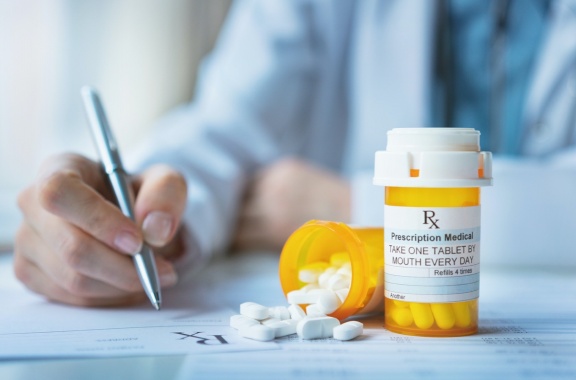Now that businesses have begun to restart services and are pivoting to a new normal, many employers are beginning to think strategically about their 2021 health benefits plans. Part of that planning includes taking a closer look at how COVID-19 will impact pharmacy benefits and taking steps to control medication costs.
For insight into recent changes in the pharmacy industry and a forecast of what’s to come, we spoke to James Manfred, Executive Director of Retail Pharmacy at Vanderbilt Health.
Has pharmaceutical spend gone down because of COVID-19?
Pharmacy spend will probably never go down in total because of the innovation in pharmaceuticals. If there is a new drug that treats a disease state that previously had no treatment, that new medication will most likely be covered. The number of members of a plan having that disease will affect that plan’s drug spend, so it is never easy to determine what the future drug spend will be based on history. Any employer who has or had a member with hemophilia will understand what one patient with a high-cost disease state will mean to their drug spend.
You may not have a crystal ball, but what are some of your thoughts about the pharmacy spend for the rest of 2020 and into 2021? What does the forecast look like?
For disease states that have existing safe treatments, the trend should be flat. The vast majority of medications people are taking for maintenance are now generic, which means employers’ cost for those is relatively inexpensive. But if a plan’s membership includes people with disease states that have a new treatment that becomes available, that one treatment can have a huge impact on that plan’s drug spend. Of the new medications coming to market, 50% are these types of specialty medications, so the potential for a large increase is there.
We're imagining that COVID-19 has meant that chronic conditions have not been properly managed. Are you anticipating a backlog of prescriptions and the need to fill those rapidly?
Medication access has not been an issue throughout the pandemic, and I am not concerned for our patients. We have been proactive in trying to get medications to them via the method they feel most comfortable. Walgreens and CVS are offering free home delivery for the duration of this crisis. But COVID-19 could be a roadblock causing some patients not to seek care. There are many unsubstantiated reports that some patients on certain medications fare worse with COVID-19 than others, but that is an effect we won’t know about until a bit later.
In early May, the FDA approved emergency use of remdesivir as a COVID-19 experimental therapy. How will the industry deal with the rush for those kinds of experimental therapies? How will employers deal with the pressure to add these therapies to formularies, particularly as they look to 2021 health plans?
Remdesivir, which proved effective for Ebola, has already shown to be pretty effective for some people with COVID-19. The manufacturer actually gave the medication to the federal government to distribute around the country as they see fit. The manufacturer has already spent probably close to a billion dollars to see if it has an effect on certain viruses. The company has to decide both economically and politically what they need to charge for the drug going forward, but right now they're giving it away. From my point of view, it’s pretty amazing that a for-profit company is willing to give away their product to get us through this initial crisis with COVID.
What are your thoughts about drugs like hydroxychloroquine that may have been used for other conditions being used for COVID-19?
Hydroxychloroquine is used to treat malaria as well as autoimmune diseases like lupus. Doctors were discovering that some patients’ immune systems were overreacting to the COVID-19 virus, and hydroxychloroquine actually works for some by toning down the immune response and prevent it from going crazy. It’s been around forever and is not an expensive drug.
What about other drugs that might have seen an uptick? With the coronavirus causing greater stress and anxiety in everyone, are medications for behavioral health on the rise?
Yes, lots of antianxiety medications and antidepressants are being prescribed. But my biggest fear is that some people are self-medicating with other products, such as alcohol. I’m concerned with how that will play out both with their current medications and on their overall health in the long run.
What are some of the ways to combat rising pharmacy costs, particularly when it comes to specialty drugs?
It’s a good time to consider if your pharmacy benefits manager offers medication management. Medication management is a service to help patients ensure their medicines are safe, easy to get, affordable and work well together.
With medication management services, pharmacists use data analysis to help ensure at-risk patients are getting the right medications, that those medications are doing what they’re supposed to do, and that there aren’t any unintended side effects. For people with chronic conditions such as diabetes, hypertension and cholesterol, they may be taking eight or nine drugs for those conditions and need help managing those medications. One patient we worked with was on 15 drugs; by the time they left a medication management meeting, they were able to delete medications that were used to counteract the side effects from other drugs and get that number down to 12. The patient was thrilled because now they were taking three fewer pills and their monthly medication costs were lower, and the employer was happy because overall costs were reduced. It was a win-win.
